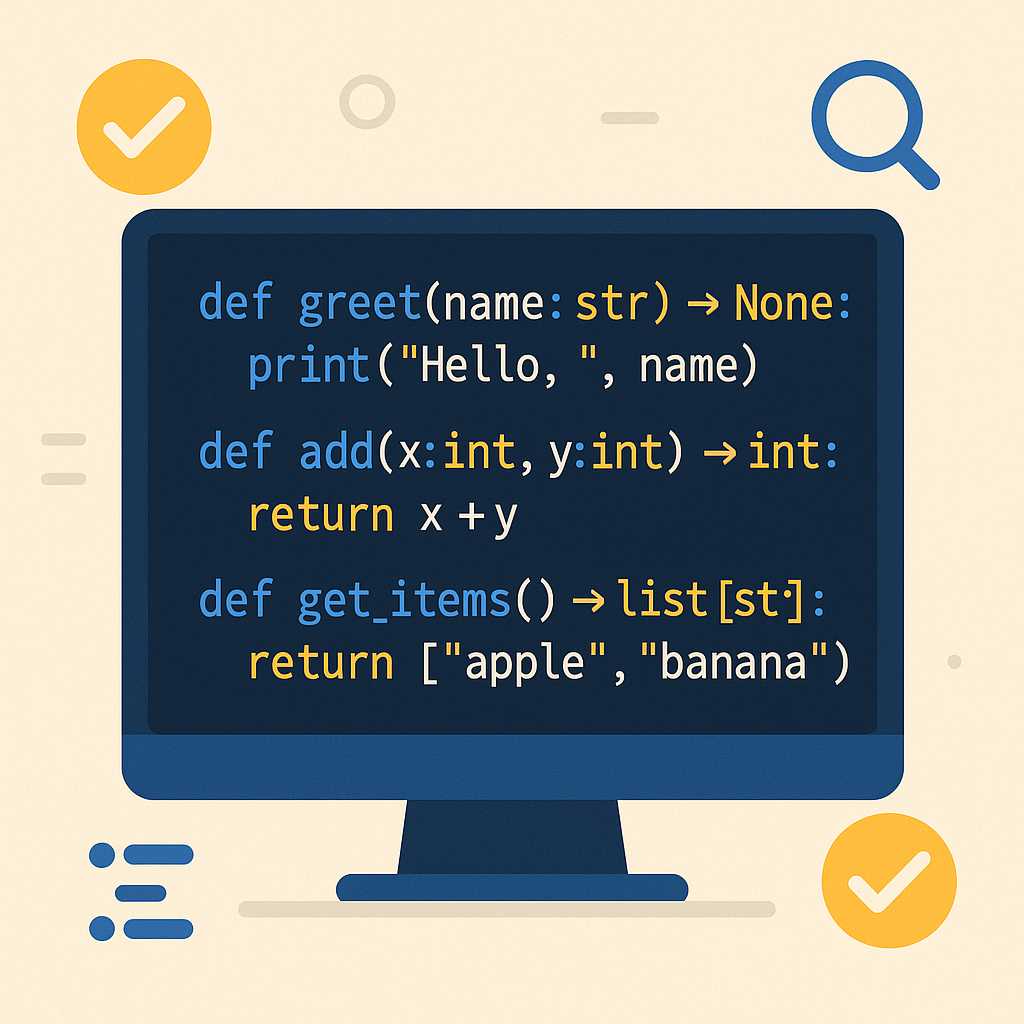Type hinting, introduced in Python 3.5, has evolved from a simple suggestion for code readability to an essential tool for writing robust Python programs. In this article, we’ll explore what type hinting is, why it matters, and how you can incorporate it into your projects to write cleaner and more reliable code.
What is Type Hinting?
Type hinting provides a way to explicitly indicate the expected types of variables, function arguments, and return values. Unlike statically typed languages, Python does not enforce these hints during runtime; instead, they serve as guidelines that improve the developer experience and enable tools to catch potential bugs earlier in the development process.
Basic Syntax Example:
def greet(name: str) -> str:
return f"Hello, {name}!"
Here, name is expected to be a string, and the function is expected to return a string.
Why Should You Use Type Hinting?
- Catch Bugs Early: Tools like
mypyand many IDEs can flag type inconsistencies before you even run your code. - Improve Readability: Type hints act as documentation, making it clear to others (or your future self) what each function expects and returns.
- Refactor with Confidence: Updating code is less risky when you can see and check types across your codebase.
Core Type Hints: A Quick Overview
The typing module provides the building blocks for type hinting.
- Basic Types:
int,float,str,bool
- Collections:
List,Dict,Set,Tuple
- Optional Types:
Optional[str]indicates a value that could be a string orNone
- Unions:
Union[int, float]allows either type
Example with Collections and Optionals:
from typing import List, Optional
def get_first_name(names: List[str]) -> Optional[str]:
return names[0] if names else None
Type Checking Tools
To get the full benefit of type hinting, use static type checkers like mypy or leverage IDE features:
- Install with:
pip install mypy - Run with:
mypy your_script.py
Python 3.9+ Improvements
You can skip importing from typing for built-in types and write:
def mean(values: list[float]) -> float:
return sum(values) / len(values)
Conclusion
Type hints don’t slow you down; they make your code easier to understand, maintain, and less prone to bugs. Adopt them gradually and unlock a new level of Python productivity!
Happy coding!
— Pythia, Software Engineer and Python Enthusiast


Leave a Reply